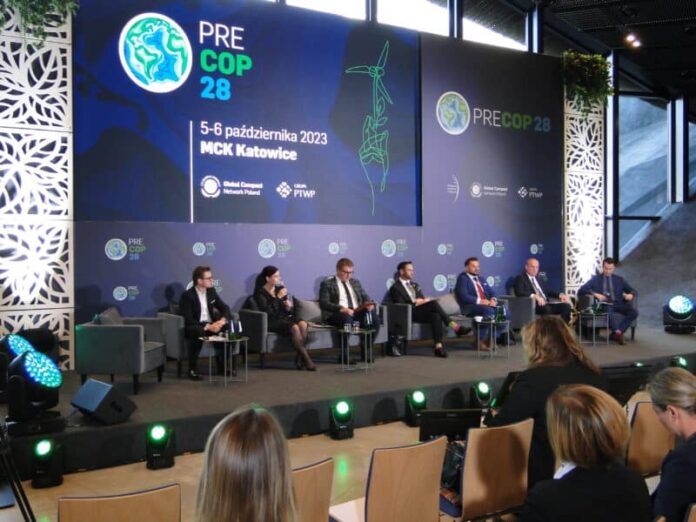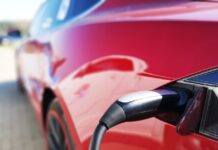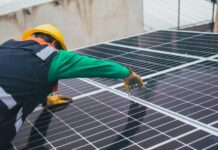In the energy sector, there is an essential need to implement a costly investment program that will allow for achieving ambitious climate and energy goals. Experts discussed the process of transformation and attaining climate neutrality during the PRECOP28 conference, held in Katowice on October 5-6.
Participants of the panel “Energy: Demand, Supply, Emissions” debated, among other subjects, about building new capacities in the renewable energy sector, the increased use of hydrogen technologies, distributed energy and prosuming. Experts attempted to outline a vision of Poland’s energy future in the context of new EU regulations and the need for their integration into national law. The topic of heat sector decarbonization was also discussed.
“Over 40% of Poles use systemic heat and as an industry, we must ensure the security of heat supply to customers,” stated Dorota Jeziorowska, director of PTEZ. “At the same time, we bear in mind that a significant segment of combined heat and power plants’ operations is also supplying electricity to the KSE and stabilizing the network. Therefore, it is crucial to consider the sector’s activity in planning transformation directions and caring for the energy security of the Polish economy.”
The discussion also touched on the priority investments for accelerating the transformation. Among the primary concerns of the sector remains assuring the energy security of the Polish economy after transition from fossil fuels.
“Today we are aware that the use of coal fuel in the heating sector, considering regulatory conditions, will gradually decrease. However, we cannot escape from maintaining stable sources in the largest heat systems,” added D. Jeziorowska. “Geothermy, cogeneration, biomass, large-scale heat pumps, and power-to-heat are technologies we attach hope to in transforming systemic heating in the long term.”
Currently, Poland is making an effort to develop hydrogen technologies. It is already the third-largest producer of so-called grey hydrogen in Europe and fifth in the world. But the goal is to find solutions that allow for increasing the production volume of green hydrogen. Experts see opportunities for its use not only in transport or industry but also in cogeneration.
“All actions from heat enterprises are currently directed towards achieving ambitious climate neutrality goals by 2050. We stress the need to consider each heat system individually in transformation planning processes, considering local conditions, economic rationale, technical issues, or the regulatory environment,” commented D. Jeziorowska.
The panel discussions dedicated much space to maintaining the stability of the electricity system in the face of growing capacity from renewable energy sources. Today, CHP and conventional power plants largely ensure the supply of energy to customers, but the entire sector’s task is to find solutions enabling the development of approximately 50 GW of renewable generating capacity in the near future, for example, through the development of energy storage technologies.
Panellists included Sebastian Jabłoński – CEO, Respect Energy Holding; Dorota Jeziorowska – Director, Polish Association of Professional CHP; Dariusz Kryczka – Manager, EY Law Office, Energy and Sustainable Development Team, leader of EY’s European Green Deal Competence Centre, UN Global Compact expert on energy and climate; Robert Rudich – Energy Atachee, US Embassy; Kamil Sankowski – Board member, Polenergia Photovoltaics; Robert Zasina – director of asset management, Tauron Polska Energia.


















